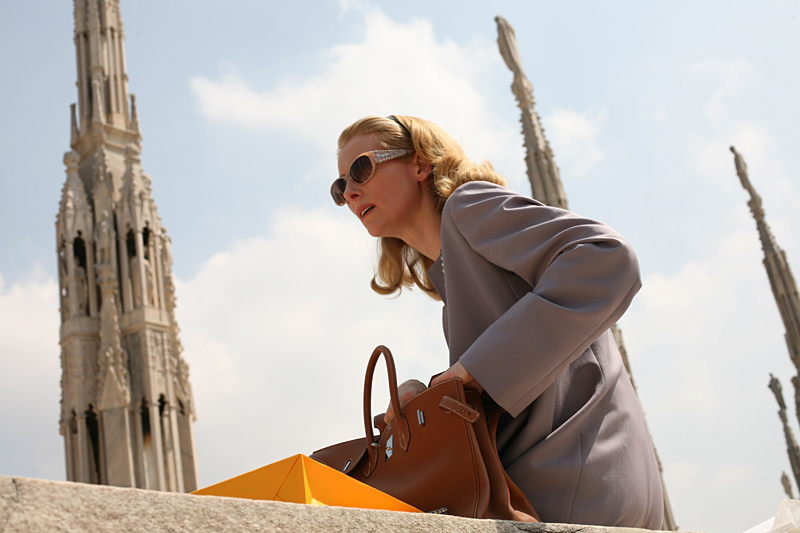1. The irony of The Social Network is that its creators, director David Fincher and writer Aaron Sorkin, are 40-somethings who’ve candidly admitted they didn’t even use Facebook before making this movie about its founder. Based on Ben Mezrich’s start-up saga The Accidental Billionaires, which follows Mark Zuckerberg from Harvard schlemielhood to Silicon Valley swagger, the film is engrossing for techies and non-techies alike. Sorkin specializes in dialogue among very smart, articulate, and flawed people. No one’s an outright villain in the film, because everyone contributes something valuable to Zuckerberg’s rolling ball of snow. But the cost for this young, lonely mogul, in Fincher and Sorkin’s estimation, is to be a silicon Citizen Kane who can never reboot his life.
2. There’s also a lingering sadness to Toy Story 3, which caps Pixar’s nearly perfect trilogy (one of the rare three-packs that didn’t fizzle like The Matrix). Aging, obsolescence, and loss pervade this sunny, kid-friendly comedy. Not since The Iron Giant has an animated family movie confronted death so directly. Those final scenes at the shredder/incinerator plant probably caused many kids to crawl onto their parents’ laps.
3. By contrast, I Am Love is very much for adults. Rich Italian housewife Tilda Swinton’s mad foray into adultery costs her everything she has. It’s a grand melodrama of love and loss, both ridiculous and sublime. Director Luca Guadagnino clearly had Madame Bovary, Anna Karenina, and opera on his mind when writing the film; and the insistent, thrumming score (by American composer John Adams) propels Swinton’s heroine from high station to solitary tragedy.
4. The flip side of globalization, in Lixin Fan’s Last Train Home, are those unseen Chinese factory workers who sew our jeans and assemble our iPads. Fan followed a single family for almost three years, revealing grievous strains among the generations divided between rural homes and factory dorms. Once annually, they travel home for Chinese New Year, 130 million of them, in scenes that give the phrase “sea of humanity” fresh meaning—and also put our TSA complaints in perspective.
5. Just by reading the newspaper for the past two years, you already know much of Inside Job, Charles Ferguson’s account of the subprime mortgage meltdown and global financial crisis. And maybe you also read The Big Short and all the other books on the credit crunch. Still, Ferguson’s doc is a lucid, two-hour primer on how billions were lost, and thousands made homeless, owing to an unholy combination of deregulation, derivatives, bogus economic theories, and greed.
6. Crime of a different and direct sort—dare we say honest?—is the subject of A Prophet, set mostly inside a French prison. The penitentiary is a place of education for Jacques Audiard’s Arab hero, where he’s mentored in the ways of smuggling, drug dealing, and murder. Yet beyond those walls, it’s politics, racism, and socioeconomic blight that have put Malik in this place of learning. Just like in the U.S., in other words.
7. Pedro González-Rubio’s Alamar reminds us how most films have far too much dialogue. (Sorry, Social Network.) Before his ex will fly their son to Italy, a Mexican man takes the kid on vacation to the breathtaking Banco Chinchorro nature preserve. There, the two—played with tactile intimacy by a real father/son duo—fish and explore the beaches; for entertainment they hand-feed a baby egret that stilt-walks into their home (a shack on pilings in the bay). Simple images, like their feet touching on a log, communicate all that needs to be said before parting.
8. Everybody’s sick of the nine-year-old war in Afghanistan, yet no one seems capable of ending it. Directed by photographer Tim Hetherington and journalist Sebastian Junger (War is his companion book), the documentary Restrepo was made on the frontlines of the Korengal Valley. The filmmakers and troops came under fire repeatedly, and men died (though not on camera). Yet the U.S. military abandoned the Korengal earlier this year, ceding it back to the Taliban. Safe on leave, one soldier asks in the film, “What did we achieve?” It’s a rhetorical question that’s left unanswered.
9. Politicians are called to account in Roman Polanski’s astringent thriller The Ghost Writer, only each confession contains another lie. Elegantly shot and icily controlled, the film grants Pierce Brosnan a career-best turn as a disgraced former Prime Minister living in exile. Ewan McGregor is more of a blank (i.e., patsy) as his gullible ghostwriter; this poor scribe is manipulated just as expertly as Polanski does us.
10. The softer and Southern (!) side of McGregor is on view in the larky crime comedy I Love You Phillip Morris, but the film is really a showcase for Jim Carrey—c’mon, AMPAS, nominate him already!—as a serial con man with a surprisingly tender side. If film is a little messy, well, so are love and crime.
Honorable mention: Black Swan, Centurion, Greenberg, Green Zone, The Kids Are All Right, Marwencol, Micmacs, 127 Hours, Soul Kitchen.
Honorable mention from SIFF (not yet released in Seattle): Air Doll, Altiplano, Secrets of the Tribe, This Way of Life.
January titles of note: Another Year, The Company Men.








